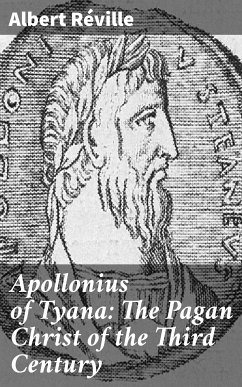In "Apollonius of Tyana: The Pagan Christ of the Third Century," Albert Rv©ville intricately explores the life of the enigmatic philosopher and wonder-worker, Apollonius of Tyana, juxtaposing his narratives with the historical development of early Christianity. Through a meticulous examination of contemporary texts, Rv©ville employs a critical literary style that weaves together biography, theology, and cultural history, offering a profound understanding of the spiritual milieu of the third century. The book not only scrutinizes Apollonius's philosophical teachings but also highlights the syncretic nature of religious thought during a time of intense spiritual evolution, framing Apollonius as a potential precursor to Christ in both ideology and influence. Albert Rv©ville, a distinguished scholar of religious history and an advocate for a rational understanding of faith, draws on his extensive background in the study of ancient religions and their interplay with early Christianity. His academic work reflects a fervent interest in the dynamics of belief systems in antiquity, which undoubtedly influenced his analysis of Apollonius. Rv©ville's objective was to illuminate the complexities of religious thought, confronting established narratives about the origins of Christian dogma. This book is an essential read for students of theology, history, and philosophy, as it challenges conventional perceptions and encourages a deeper inquiry into the complexities of spiritual heritage. Rv©ville'Äôs scholarly approach urges readers to reconsider the impact of figures like Apollonius on early Christian thought and the broader implications for understanding religious development.
Dieser Download kann aus rechtlichen Gründen nur mit Rechnungsadresse in A, B, BG, CY, CZ, D, DK, EW, E, FIN, F, GR, H, IRL, I, LT, L, LR, M, NL, PL, P, R, S, SLO, SK ausgeliefert werden.









